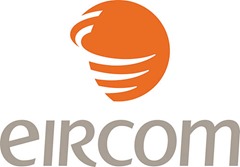BYOD: Changing IT
 Shane Haslem, eircom UK’s Head of Managed Network Services and Data Solutions, reviews the ‘gallant march’ of the Bring Your Own Device (BYOD) movement and what this really means for IT.
Shane Haslem, eircom UK’s Head of Managed Network Services and Data Solutions, reviews the ‘gallant march’ of the Bring Your Own Device (BYOD) movement and what this really means for IT.
In the last five years, the smartphone and tablet have burst onto the scene. Worldwide smartphone sales to end users in the second quarter of 2013 reached 225 million units, up 46.5 per cent on the same period last year (Gartner, Market Share Analysis, mobile phones, World Wide 2Q13). This, in turn, is putting increasing pressure on organisations to adopt a holistic approach to the development of BYOD strategies and supporting policies.
Device numbers are constantly multiplying, mobile management solutions are flooding the market and organisations that stuck their head in the sand are now seeing the error of their ways when it comes to BYOD. Organisations now have to consider the implication of employees turning up to work expecting to connect their smart devices to the network. The prospect of staff using their own devices in the work environment raises serious challenges for IT teams.
So where do you start?
The first and most fundamental challenge lies in the design and deployment of a robust and reliable wireless infrastructure to provide a conduit for mobile devices to access the network. A centralised wireless management solution will provide improved administrative control for monitoring the functionality and security of the wireless deployment.
Ensuring the security of the network is of paramount importance when additional mobile devices are being granted access to business applications. Robust authentication should be deployed to authenticate both the user and the device. Mobile device profiling will also need to be implemented to determine what network resources and applications the user and device combination can access.
Another hugely important consideration is determining how to manage and protect your organisations data, particularly when the user takes the device off-site to an uncontrolled wireless environment. If you allow sensitive data to be downloaded to the end device then the IT department must have a way of wiping that data in the event of theft or loss but at the same time not touching personal content. Mobile device management can control device access but also determine what data can be stored on the device.
Equally important is the need to work with HR colleagues to ensure that a organisation wide policy is developed in relation to the use of these smart devices and that the rules are communicated to everyone at every layer of the business including guests such as contractors and suppliers. A good BYOD policy must reference what constitutes sensitive data, which users can access this data and how this data is accessed. It is essential that the strictest privacy, compliance and risk management mandates are adhered to, while simultaneously employees receive a high quality user experience.
Processes are also needed for handling employee departures to ensure access to company apps or data is revoked.
From SMEs to the largest corporation, these increasingly powerful tools are here to stay and organisations need to adapt their strategies to allow for the safe and secure use of these devices within the work environment. The key is in planning, making sure your wireless networks are robust and secure enough now and into the future, and putting the proper procedures and processes in place to govern their use.
eircom is the leading communications provider to the government and education sectors across Northern Ireland, providing leading edge next generation managed network and unified communications services to enable our clients to implement strategic business transformation programmes.
eircom will continue to grow its Northern Ireland operation by exporting its unique service offering to local government authorities in Great Britain who are embarking on the journey of enabling shared services and adopting cloud services.
 eircom UK
eircom UK
Forsyth House
Cromac Square
Belfast, BT2 8LA
Tel: 028 9000 2100
Email: shane.haslem@eircomni.co.uk
Web: www.eircom.co.uk





